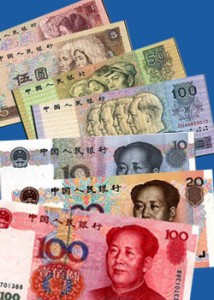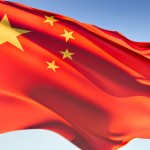China Economy Weekly: Monetary Policy; Manufacturing Shifts; Energy Use
 Tuesday, August 10, 2010 at 1:42
Tuesday, August 10, 2010 at 1:42 
China's Loose Monetary Policy: The People's Bank of China has said it will maintain its moderately loose monetary policy and enhance financial supports to boost the economy' s sustainable development.
The PBOC reiterated it would maintain continuity and stability in monetary policy while, at the same time, making the policy more specific and more flexible. It also vowed to improve the yuan's exchange rate mechanism and to increase financial support to promote the transformation of the economic growth pattern and adjustment of the economic structure.
Chinese Economy "To Fare Well": The Chinese economy is on track to fare well this year if recent natural disasters do not disrupt grain supply and thus fuel high inflation, said Zhao Xiaoyu, vice-president of the Asian Development Bank.
Despite the fall in July in the country's procurement managers' index (PMI), which measures economic expansion, policymakers will introduce new supportive measures if economic slowdown continues, making China still attractive for foreign investment, analysts said.
Mergers reduce China's Central Enterprises: The number of China's centrally-administered state-owned enterprises (SOEs) was reduced to 123 from 125, after two mergers were approved by the State Council, the country's Cabinet.
China National Real Estate Development Group Corporation was merged into China Communications Construction Company Limited, while Shanghai Ship and Shipping Research Institute became a wholly-owned subsidiary of China Shipping (Group) Company.
The Chinese government wants to reduce the number of SOEs to less than 100,focusing on the creation of 30-50 large groups with strong international competitiveness, by the end of 2010.
China Crackdown on Hot Money:China's foreign exchange regulator Wednesday pledged to continue efforts to manage illegal capital inflows in the second half of the year.
The State Administration of Foreign Exchange (SAFE) said it had investigated up to 3.5 million cases of international trade transactions, involving a total of $440 billion, during its hot money monitoring campaign, which began in February.
SAFE said last month that its investigations had found 190 cases, involving $7.35 billion, of hot money inflows.
The hot money campaign was launched amid concerns that speculators were betting on an appreciation of the Chinese currency and rising asset prices.
China "To Make Yuan Convertible": The ultimate goal of China's exchange rate reform is to make the yuan a fully convertible currency, Yi Gang, deputy governor of the People's Bank of China, said Friday, although he added, "There is no official timetable for a convertible yuan."
China can maintain a flexible exchange rate and make the currency stand at a basically reasonable and balanced level, Yi said.
Central Bank Pledges Support to Western Regions: Chinese central bank governor Zhou Xiaochuan said the bank will increase its financial support for the development of the country's western regions.
The central bank will offer more financial aid to the tourism industry and other service industries, according to remarks Zhou made during his visit to the provinces of Qinghai and Gansu.
Zhou also said the central bank will seek to make fundraising easier for small- and medium-sized businesses and farmers. Greater efforts will be made to boost financial innovation and to support urbanization in western China, he added.
China Cuts Tariffs for Civilian High-Tech Projects:China has scrapped tariffs and value-added taxes on core equipment, components, and raw materials imported and used in civilian high-tech projects since July 15, according to a circular of the Ministry of Finance.
The projects exempted from taxation include core electronics, high-end universal chips, basic software, integrated circuit-manufacturing equipment, new generation wireless mobile communication networks, and new drugs for prevention and treatment of infectious diseases such as AIDS and hepatitis.
China Automobile Sales Rise: China's annual production and sales of new autos will surpass 15 million vehicles this year, Dong Yang, secretary-general of the China Association of Automobile Manufactures, said Wednesday.
Auto sales in China continued to rise in July, though at a slower pace than in previous months. The growth rate slowed from 124 percent in January to 40 percent in April, to 17.18 percent in July.
Based upon June exports, China's total auto exports for the year will hit or even exceed the 2008 levels seen before the financial crisis, Dong added.
China Energy Use: Chinese energy consumption per unit of GDP rose 0.09 percent year on year from January to June, the National Bureau of Statistics said.
Some high-energy-consuming industries reported less energy consumption per unit of industrial value-added output: the construction materials industry's use dropped 7.61 percent; the chemicals industry's fell 4.28 percent; and the coal industry's declined 2.69 percent.
Conversely, the nonferrous metals industry consumed 8.11 percent more energy per unit while the oil and petrochemicals industry consumed 11.35 percent more.
China cut energy use per unit of GDP 14.38 percent between 2006 and 2009. It aims to reduce consumption 20 percent between 2005 and 2010.
China Stop Subsidy of Energy-Intensive Firms: Preferential electricity rates granted by 22 provincial governments for high energy-consuming businesses have been scrapped, China's top economic planner announced Friday.
All energy-intensive enterprises must be subject to the new power tariff surcharges introduced in May, said the National Development and Reform Commission.
Expansion in Non-Manufacturing Sector, Drop in Manufacturing: The Purchasing Managers' Index (PMI) for China's non-manufacturing sector rose to 60.1 percent in July, up 2.7 percentage points from the previous month, the China Federation of Logistics and Purchasing (CFLP) said Tuesday.
The non-manufacturing PMI includes a package of indices to measure the non-manufacturing sector's performance. A reading above 50 percent indicates economic expansion, while one below 50 percent indicates contraction.
The July rise in the index came after two successive monthly drops and was the fifth straight month the reading was above 50 percent.
The new orders index jumped to 55.8 percent in July, 2.9 percentage points higher than June, the CFLP said, reflecting robust demand in retail and catering services.
However, manufacturing slowed as the Government tried to
curb the risk of overheating and adjust the economic structure.
The PMI for manufacuring eased 0.9 percentage points from a month earlier to 51.2 percent in July
The index has stood above 50 points for 17 straight months. However, it is down for the third consecutive month and is at its lowest since February 2009, when it fell below 50.
 EA Admin |
EA Admin |  2 Comments |
2 Comments |  China,
China,  Dong Yang,
Dong Yang,  Yi Gang,
Yi Gang,  Zhao Xiaoyu,
Zhao Xiaoyu,  Zhou Xiaochuan in
Zhou Xiaochuan in  China & East Asia
China & East Asia 


